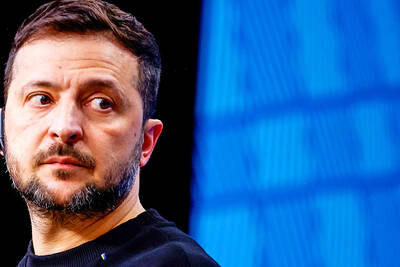German President Horst Koehler has won a second five-year term, a victory that gave a symbolic boost to German Chancellor Angela Merkel’s hopes of forming a center-right government after a national election in September.
Koehler, a former IMF head and a member of Merkel’s conservative Christian Democrats, secured the required majority by a single vote in the first round of voting by a special parliamentary assembly on Saturday.
That was enough to see off a challenge from center-left Social Democrat Gesine Schwan, who was bidding to become Germany’s first female president — a largely ceremonial job.
Merkel said she was “very glad” about Koehler’s swift victory.”
“We think he is the president Germany needs in this situation,” she said.
The popular 66 year old won 613 votes in the 1,224-member parliamentary assembly, made up of lower-house lawmakers and delegates nominated by state legislatures. Schwan, who had hoped to force further rounds of voting, won 503.
The presidency is supposed to be above the political fray and carries little real power, but Schwan’s challenge shook up the usually genteel election process and raised doubt over Koehler’s re-election.
The vote came before Merkel and Social Democrat Frank-Walter Steinmeier, her foreign minister, face off in a Sept. 27 national election in which both hope to end their tense “grand coalition” of Germany’s biggest parties.
As opposition leader, Merkel installed Koehler in 2004 with the help of the pro-business Free Democrats, her preferred future coalition partner. They backed Koehler’s re-election, along with a smaller center-right group.
Merkel and the Free Democrats’ leader, Guido Westerwelle, appeared together to congratulate Koehler.
“Every election has its own dynamics, but it is no secret that we are working to achieve a majority together,” Merkel told reporters. “Today we achieved what we wanted together.”
Senior conservative ally Horst Seehofer described the outcome as “a clear signal” for a center-right victory later this year.

BLOODSHED: North Koreans take extreme measures to avoid being taken prisoner and sometimes execute their own forces, Ukrainian President Volodymyr Zelenskiy said Ukrainian President Volodymyr Zelenskiy on Saturday said that Russian and North Korean forces sustained heavy losses in fighting in Russia’s southern Kursk region. Ukrainian and Western assessments say that about 11,000 North Korean troops are deployed in the Kursk region, where Ukrainian forces occupy swathes of territory after staging a mass cross-border incursion in August last year. In his nightly video address, Zelenskiy quoted a report from Ukrainian Commander-in-Chief Oleksandr Syrskyi as saying that the battles had taken place near the village of Makhnovka, not far from the Ukrainian border. “In battles yesterday and today near just one village, Makhnovka,

Russia and Ukraine have exchanged prisoners of war in the latest such swap that saw the release of hundreds of captives and was brokered with the help of the United Arab Emirates (UAE), officials said on Monday. Ukrainian President Volodymyr Zelenskiy said that 189 Ukrainian prisoners, including military personnel, border guards and national guards — along with two civilians — were freed. He thanked the UAE for helping negotiate the exchange. The Russian Ministry of Defense said that 150 Russian troops were freed from captivity as part of the exchange in which each side released 150 people. The reason for the discrepancy in numbers

The foreign ministers of Germany, France and Poland on Tuesday expressed concern about “the political crisis” in Georgia, two days after Mikheil Kavelashvili was formally inaugurated as president of the South Caucasus nation, cementing the ruling party’s grip in what the opposition calls a blow to the country’s EU aspirations and a victory for former imperial ruler Russia. “We strongly condemn last week’s violence against peaceful protesters, media and opposition leaders, and recall Georgian authorities’ responsibility to respect human rights and protect fundamental freedoms, including the freedom to assembly and media freedom,” the three ministers wrote in a joint statement. In reaction

BARRIER BLAME: An aviation expert questioned the location of a solid wall past the end of the runway, saying that it was ‘very bad luck for this particular airplane’ A team of US investigators, including representatives from Boeing, on Tuesday examined the site of a plane crash that killed 179 people in South Korea, while authorities were conducting safety inspections on all Boeing 737-800 aircraft operated by the country’s airlines. All but two of the 181 people aboard the Boeing 737-800 operated by South Korean budget airline Jeju Air died in Sunday’s crash. Video showed the aircraft, without its landing gear deployed, crash-landed on its belly and overshoot a runaway at Muan International Airport before it slammed into a barrier and burst into flames. The plane was seen having engine trouble.